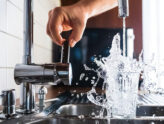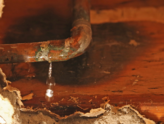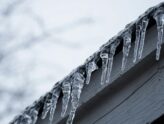7 Tips to Prevent Plumbing Problems in Your Home
There are loads of plumbing tricks that can help prevent and tackle those annoying leaks and pesky clogs and save your pipes from damage before they cause a real headache.
Our team at Caldwell Plumbing has put together a list of seven tips to prevent plumbing problems in your home. Let’s jump right in!
#1 Keep an Eye Out for Leaks
Sneak a quick look under your sink, around those faucets, and check in on your pipes. Look out for any telltale signs that might give away leaking, like moisture and drips.
If you don’t spot any obvious signs of leaking, make sure you dig a little deeper. Look at your water meter before and after not using water for a bit to spot hidden leaks.
#2 Clear Your Drains
Stop drains from clogging by popping in a strainer to stop the main culprits of blockages: hair, food, and any other debris. Never ever throw grease, coffee grounds, or harsh chemicals down your drains because it can create a nasty clog and cause some serious damage.
#3 Insulate Your Pipes
Foam insulation is like a cozy sweater that will protect pipes from frostbite, saving you the headache and hefty repair costs of burst pipes. Plus, when you properly insulate your hot water pipes, you’ll help keep heat locked in, making it easier to get steaming hot water when you need it.
#4 Monitor Water Pressure
Water pressure is all about balance. If you’ve got high pressure, your pipes can get stressed and give in, causing cracking and even bursting. On the flip side, if the pressure gets too low, it means there might be a hidden leak or a clog in your plumbing.
#5 Be Mindful When Flushing
It’s pretty surprising just how many of us are guilty of flushing things down the toilet that are not supposed to go down there, like baby wipes and feminine products.
It might not seem that bad as it disappears into your plumbing system, but deep down, it can cause a major issue behind the scenes – it can severely clog your pipes, not to mention that it’s bad for the environment.
#6 Schedule Routine Home Maintenance
Contact the professionals to inspect your plumbing system. The experts at Caldwell Plumbing can spot things that most people wouldn’t know to look for.
Schedule an appointment for a home maintenance check and get a full rundown of your plumbing system’s health.
#7 Flush Your Water Heater
Over time, sediment can gather in water heaters, which can knock a few years off your unit’s life, make it work slower, and skyrocket your energy bills. To keep your unit in good health, drain and flush it every year.
You should also have a look at the pressure relief valve to make sure it’s functioning as it should and inspect for rust, leaks, and any suspicious sounds that might signal damage.
Solve Plumbing Problems in Your Home with Caldwell Plumbing
The team at Caldwell Plumbing are pros when it comes to fixing plumbing problems and keeping systems in good health. Contact us today to find out how we can help!
Frequently Asked Questions
Check for leaks, give your drains a good clean, inspect your pressure relief valve, and test how well your shut-off valves are working – these are all must-try home maintenance inspections.
If you happen to spot something that’s off, call in one of our experts.
The most common headaches to deal with in our home plumbing are clogged drains, dripping faucets, and leaks. These problems typically arise when gunk and dirt get built up, fixtures get worn in, and pipes start to age.
Pipe insulation is a simple DIY task for most homeowners. Foam sleeves are affordable, easy to install, and available at hardware stores. Just make sure to cover pipes in unheated areas like basements and crawlspaces.
Anything over 80 psi is considered high and could damage your plumbing system. You can use a pressure gauge to check it or ask a professional from Caldwell Plumbing to test it during a home visit.

















